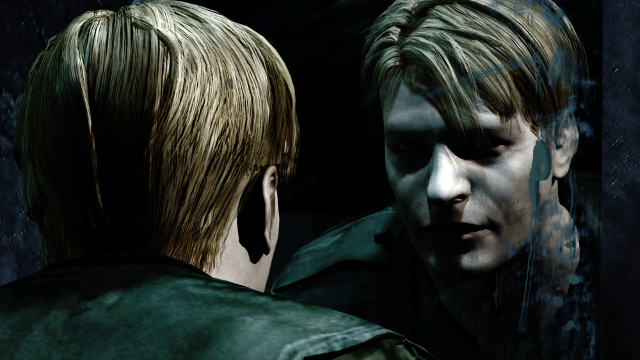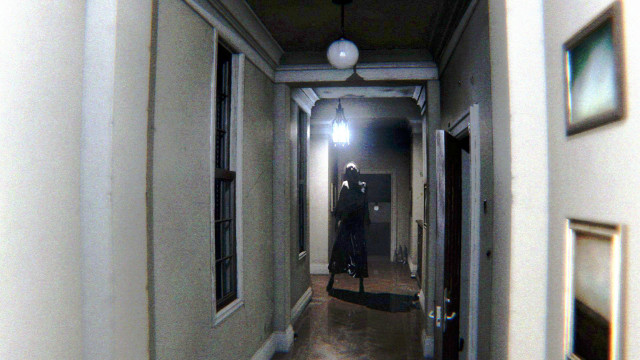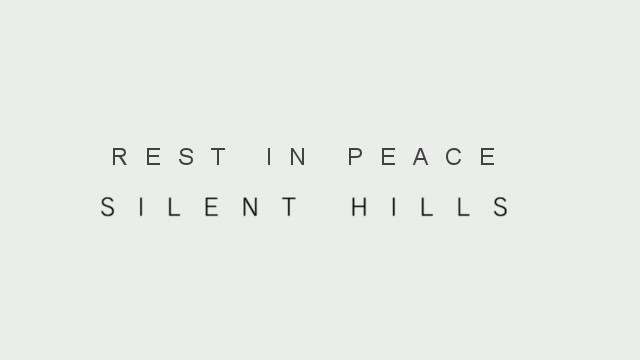Horror in recession
I remember in the late 90's it felt like I was overwhelmed with great horror games. The original Silent Hill stands as one of the best of the genre and Resident Evil showed how horror can be infused with exciting action, There was also Clock Tower, Dino Crisis, System Shock, Alone in the Dark, and Square's uniquely fantastic Parasite Eve. Each of these games were memorable, shaping high expectations for years to come.
The flow of solid horror releases would continue into the turn of the century. Fatal Frame, F.E.A.R, and The Suffering would offer the industry three more psychologically terrifying options. Dead Space would show that sci-fi wasn't a stranger to horror. Meanwhile, Silent Hill 2 and Resident Evil 4 would become the best of their respective franchises if reception and sales were any indication.

This horror game momentum would come to an abrupt close around 2010. Sadly, during the past five years good horror games have become the exception rather than the norm. Developers have struggled to come up with ways to create lasting horror experiences, even those of the legendary Silent Hill and Resident Evil series. The stories have been less interesting, the atmosphere has left a lot to be desired, and the gameplay hasn't kept up with the times. As a result horror fans like myself have been itching for their fix.
What has worked
There have been a few decent horror video games during the past few years including the likes of The Evil Within, Five Nights at Freddy's, and Alien: Isolation, but there is only one game that released during this period that I can label a true success: Amnesia: The Dark Descent.
Amnesia: The Dark Descent was a horror masterpiece. Armed with only a lantern, you would confront horrifying scenarios where you had to deal with both the threat of monsters and the darkness that would provide safety from their visibility. This darkness might make you more difficult to spot, but it would also drive the silent protagonist insane if you stayed too long. This game mechanic provided a layer of strategy that made it feel fresh and exciting, something many weren't expecting at its modest $20 price point.
Equally as important as its weapon-less gameplay was its first-person perspective. Being unable to see behind yourself, forced to encounter evils head-on was an enormous task for many. Those who would survive the experience would never forget their journey. It was scary, to say the least.
The promise of Silent Hills
Silent Hills was supposed to be the next step for horror, taking what Amnesia: The Dark Descent did well and giving it a much larger budget. As seen in the teaser trailer, it was to be played in first-person. This would make walking down hallways, opening doors, and running from creatures far more frightening than the third-person perspective of the Silent Hill games that came before it.
It also was to be a game where, like Amnesia: The Dark Descent, you have no means of eliminating your threats other than to avoid them or run away. Truthfully, Silent Hill has been an underwhelming series for several iterations now, and a lot of this is owed to its development team being unable to conceptualize what the next generation of gameplay for the series should be. This atmospheric, combat-less route is the answer.
As promising as its formula was, what truly sold the concept was the team behind it. Titled Team Silent, it included masterminds such as Metal Gear creator Hideo Kojima, award-winning filmmaker Guillermo Del Toro, as well as important members of successful horror franchises throughout history like Keiichiro Toyama, Hiroyuki Owaku, and Masahiro Ito. Silent Hills' trailer was a crowd-winner, and P.T. was convincing, but the dream team of developers behind it made it one of the most encouraging up-and-coming games in the industry.
A swift death
As you might have heard, Kojima Productions has had a major breakdown with Konami (a source of ours can confirm). Rumor has it that Konami doesn't want to or can't continue to produce high investment games following Metal Gear Solid V's lengthy development cycle. In other words, it wants to focus on Pro Evolution Soccer and mobile games instead of the games that we talk about for years before they hit store shelves.
Along with Silent Hills' powerful development team was to be an undoubtedly large budget. This didn't mesh well with Konami's new philosophy. So, no matter how much of a breakthrough it could have been, Silent Hills was laid to rest before it ever saw the light of day.

This is troubling to me for several of reasons, one of which is that Silent Hills was the type of game that could have turned Konami from a struggling publisher into a rock star. This is a game that was on the front page of outlets for days, and has continued to be a hot topic. There's a reason the internet is ablaze with discussion about Silent Hills' cancelation. Why Konami wouldn't seize the opportunity is beyond my comprehension.
The other reason I'm troubled is that I've constantly seen publishers not only put money first when it comes to making games, but make it 100% of the decision making process with no regard for the impact on gamers as a whole. Silent Hills was capable of being legendary, and being unwilling to take the risk required to potentially make something truly spectacular is a huge loss for the industry.
At least we have P.T.
As much as it hurts to lose a game capable of so much, we still have P.T. While just a short teaser, it stands as one of the single best pieces of horror media in video game history. It will not be forgotten, and could inspire another group of ambitious developers to push horror to the next level.
For now, we bid farewell to Silent Hills. Hopefully the cries of horror fans will be heard, and a new savior of the horror genre will be born.







